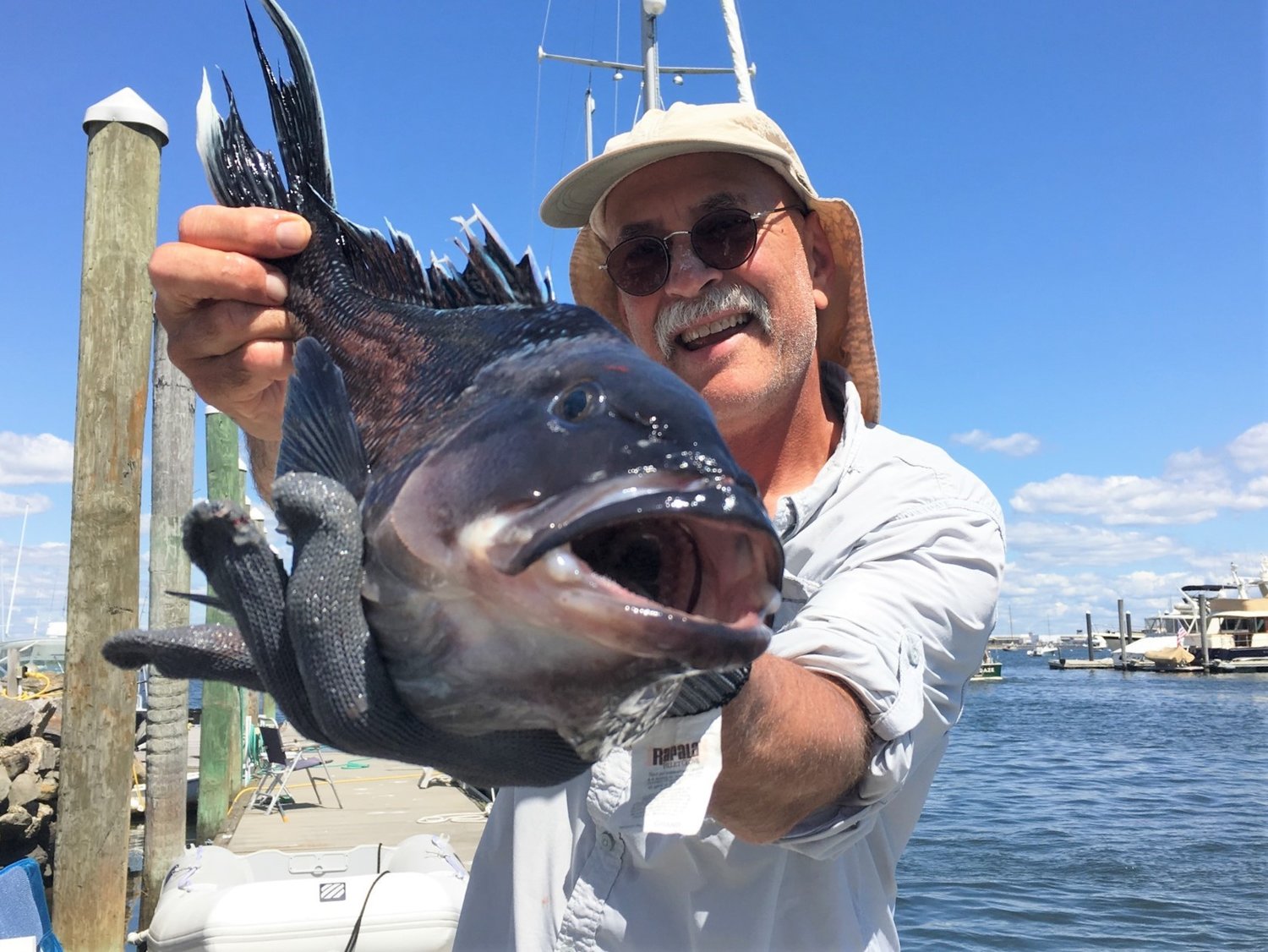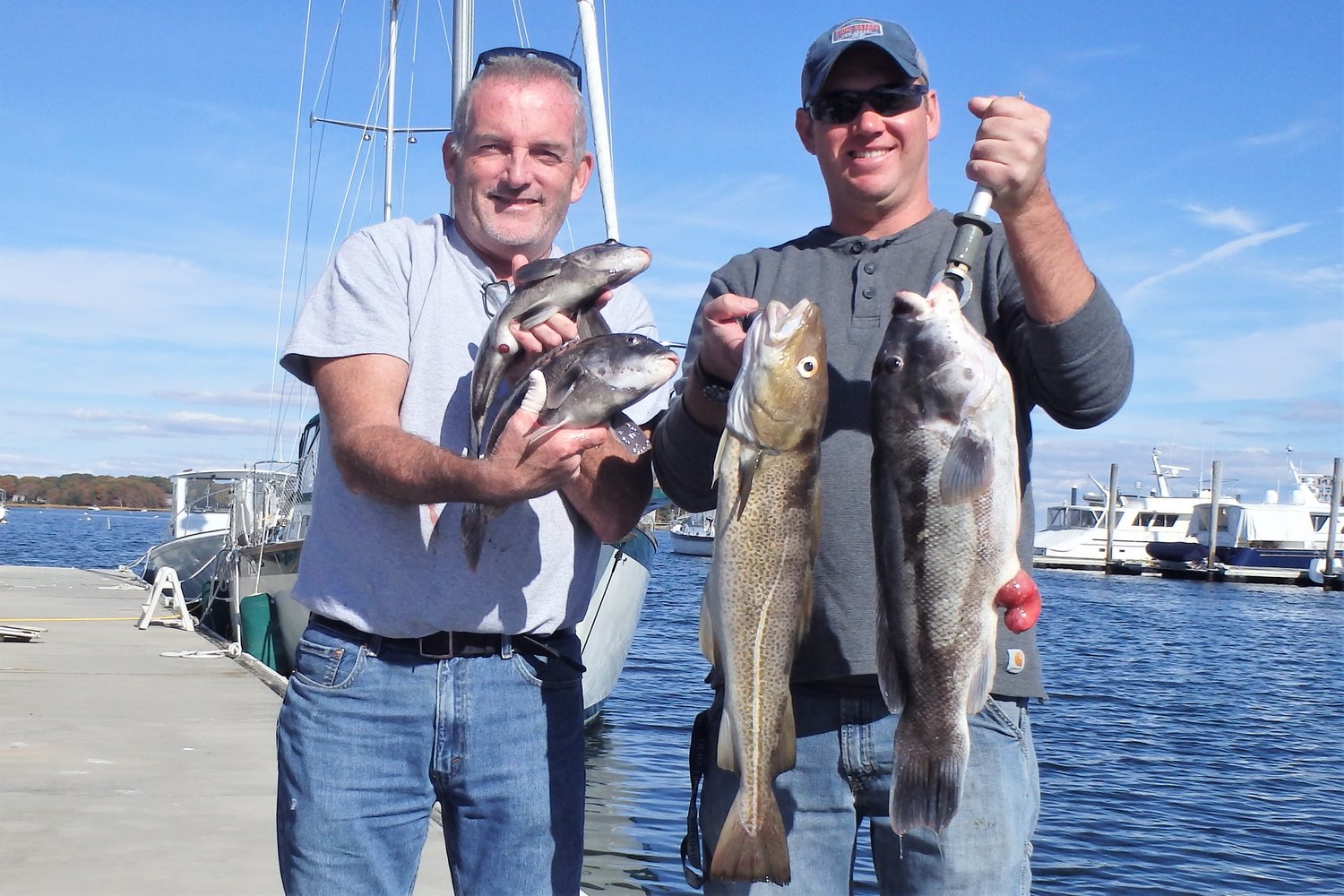NOAA reaching out to anglers
The National Oceanographic & Atmospheric Administration (NOAA) reached out to anglers at a Recreational Fishing Workshop Thursday, October 24 at the University of Rhode Island Bay Campus, Narragansett.
The purpose of the workshop was to develop potential management approaches for the groundfish fishery that balance the need to prevent overfishing while enabling worthwhile fishing opportunities for anglers and profitability in the for-hire fleet.
Forty-four anglers, charter captains, fishing club leaders, and fish mangers attended the day-long workshop. According to NOAA’s ‘Fisheries Economics of the U.S.’ in Rhode Island recreational fishing has a sales impact of $412-milloin, and commercial fishing a $333-million sales impact. So both recreational and commercial fishing have a great economic impact in the state and country.
A number of NOAA and University associated scientists presented the stock status of ground fish. Joseph Langan, Ph.D. candidate from URI conducted an Atlantic cod study in Southern New England. His study concluded that the Georges Bank cod fishery (the bio-mass we fish off Rhode Island), had poor performance the last two years possibly due to warmer winters than usual; September and October water temperatures were warmer than cod prefer; and possibly the fact that black sea bass appear to be a major food competitor of cod (they eat exacting the same things).
Key recommendations made by recreational anglers at the workshop a catch & research program that aims to help reduce mortality of released fish i.e. cod, fluke and other species such as striped bass and bluefish. Possibly a video and short angler quiz that are conditions for anglers to get a recreational license or permit. A second major recommendation was the development of separate regulations for the for-hire industry that would require electronic recording of catch, effort and spatial information in exchange for some flexibility as to when, what and where they fish as long as they stay within allowable catch limits.
NOAA plans to process these and other suggestions and use them to inform plan development.
Congress aims to help fishermen cope with climate change
Last year our oceans absorbed 93 percent of the heat our carbon emissions trapped in the atmosphere. The ocean would never release all this retained heat at once, but if the heat stored in the world’s oceans since 1955 was instantly transferred, NOAA relates the atmosphere would warm by 65 degrees F.
With accelerated warming Rep. Joe Cunningham (D-SC) has introduced the Climate-Ready Fisheries Act of 2019, bipartisan legislation to help fisheries manage the current and anticipated impact of climate change on the fish. Reps. Brian Mast (R-FL), Francis Rooney (R-FL), and Jared Huffman (D-CA) are original cosponsors.
The Climate-Ready Fisheries Act of 2019 directs the Government Accountability Office (GAO) to examine what actions have already been taken by fishery managers, identify whether any knowledge or funding gaps are hindering action, and provide recommendations for how we can better adapt fishery management, and prepare fishing industries and communities for the impacts of climate change. It also directs the GAO to offer recommendations for how Congress can enhance our nation’s science and management systems to better address climate change.
Fishermen relate climate change impacts
Rich Hittinger, 1st vice president of the Rhode Island Saltwater Anglers Association, said, “Many of the changes in fish that we see in local waters are likely due in some part to rising water temperatures. When I started fishing regularly in the 1970s, we caught pollack at Block Island, cod all around the island, winter flounder in all of the bays; but most of these fish are gone now. On the other hand we didn’t see many black sea bass and not nearly as many fluke as we have now.”
Fred Mattera is the executive director of the Commercial Fishery Center of Rhode Island (CFCRI) that represents eight commercial fishing related associations. Mattera said, “Our fishermen are experiencing increasing competition off Rhode Island from Virginia and North Carolina boats who have summer flounder quota but no fish in their area. We have the fish here but no adequate quota allocation. These allocation challenges are only going to increase as climate change accelerates and more stock shifts occur. We need an equitable way to address stock shifts and allocations.”
The stock shift example all are pointing to is black sea bass. Mattera said, “We did not catch many of them in the 90’s but today they are prolific. Our fishermen are catching them everywhere. Yet, we do not have the allocation and are throwing tons of them back as by-catch. We need to build climate change impacts like this into allocation models as soon as possible because changes are accelerating.”
New tools needed
It is clear that fish managers need additional tools to manage climate change impacts in Southern New England. Our U.S. Representatives from Rhode Island, Connecticut and Massachusetts are urged to support the Climate-Ready Fisheries Act of 2019, sign on as additional co-sponsors and be vocal about their support. And, if the fishing law of this nation, the Magnuson Stevens Act, is reauthorized next year we need to make sure climate change management tools are built into the new reauthorization bill.
Our fishery policies must evolve with the emerging threats in our future; only then can we fully protect and conserve our marine resources for us to enjoy for generations.
Where’s the bite?
Tautog fishing continues to be outstanding in Narragansett Bay and all along the coastal shore. David Bonney of Barrington and Peter Rough of Stratford, CT caught over 50 tautog, including eight nice keepers, along with black sea bass and a 24” cod Saturday when fishing 1.5 miles southeast of Brenton Reef. Capt. Thom Pelletier of Quaker Lane Bait & Tackle, North Kingstown said, “Customers are catching keepers with a lot of shorts mixed in.” Dave Henault of Ocean State Fishing, Providence said, “Anglers are catching big fish right off the bulkheads in the Providence River. You’re not allowed to tie off but anglers are maneuvering close and it is paying off with seven and eight pound fish being caught near the concrete plant. Jigs have added a sport fish element to targeting larger fish.” Tom Giddings of the Tackle Box, Warwick said, “The tautog bite has improved tremendously from Jamestown to Rocky Point.” Capt. Frank Blount of the Frances Fleet said, “Blackfishing is as good as it gets. We sailed every day we could, limited out and back to the dock early.”
Bluefish and striped bass. Dave Henault of Ocean State Tackle said, “One of our coworkers has been doing well just south of the Squantum Club. Soft plastics and epoxy jigs are working as bluefish and bass are chasing silversides.” Tom Giddings of the Tackle Box, Warwick said, “The wind and rain has just about shut down the bluefish and striped bass action in the Bay.”
Freshwater. Capt. Thom Pelletier of Quaker Lane Bait & Tackle said, “Customers are doing well with trout in area ponds stocked by DEM. And, the largemouth bass bite has been good too.” “Anglers seem to now be focused on saltwater tautog fishing. Few customers are targeting bass or trout on freshwater.” said Henault of Ocean State Tackle. “Freshwater fishing for bass is good for customers, however, not many are targeting trout.” said Giddings of the Tackle Box.
Dave Monti holds a captain’s master license and a charter fishing license. He is a RISAA board member, a member of the RI Party & Charter Boat Association, the American Saltwater Guides Association and the RI Marine Fisheries Council. Forward fishing news and photos to Capt. Dave at dmontifish@verizon.net or visit www.noflukefishing.com and his blog at www.noflukefishing.blogspot.com.









